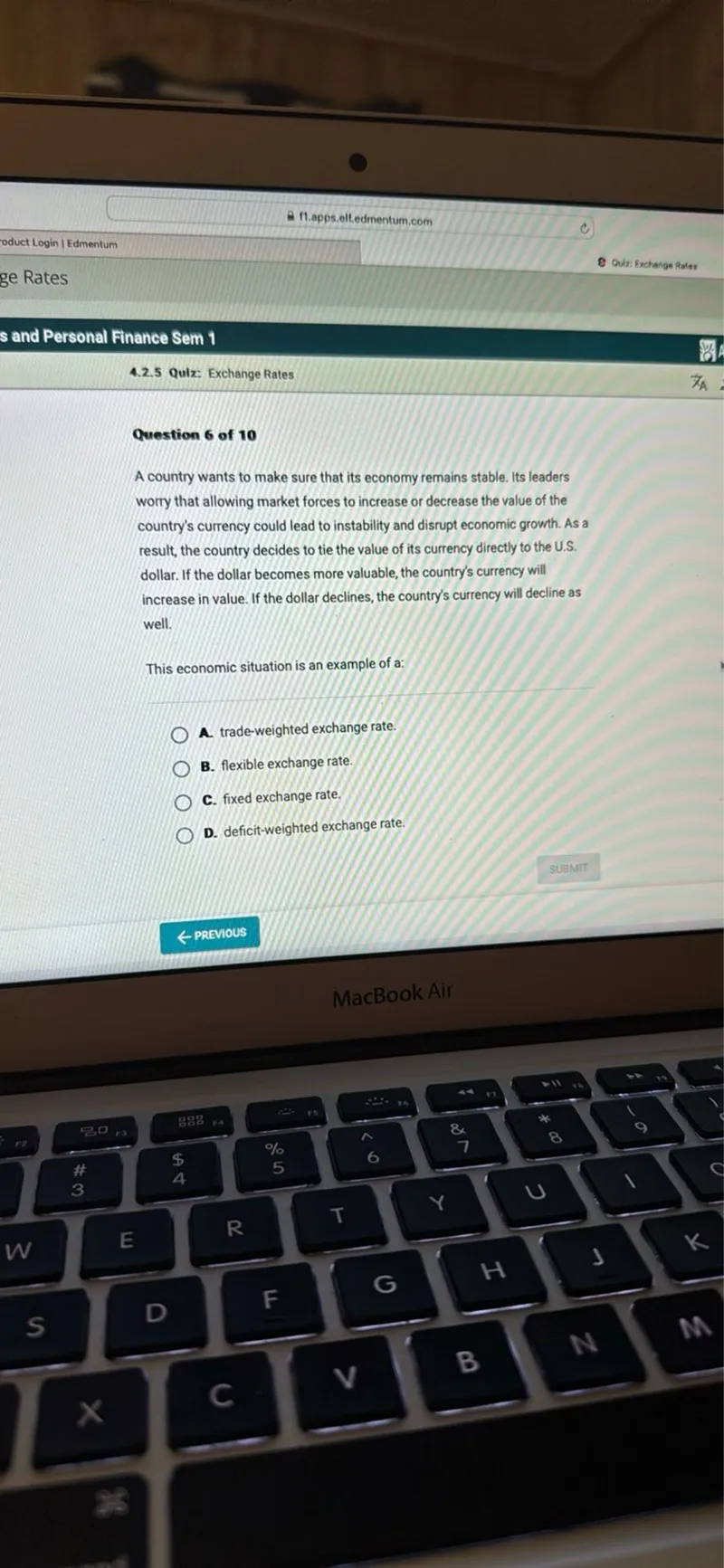Questions: A country wants to make sure that its economy remains stable. Its leaders worry that allowing market forces to increase or decrease the value of the country's currency could lead to instability and disrupt economic growth. As a result, the country decides to tie the value of its currency directly to the U.S. dollar. If the dollar becomes more valuable, the country's currency will increase in value. If the dollar declines, the country's currency will decline as well. This economic situation is an example of a: A. trade-weighted exchange rate. B. flexible exchange rate. C. fixed exchange rate. D. deficit-weighted exchange rate.

Transcript text: A country wants to make sure that its economy remains stable. Its leaders worry that allowing market forces to increase or decrease the value of the country's currency could lead to instability and disrupt economic growth. As a result, the country decides to tie the value of its currency directly to the U.S. dollar. If the dollar becomes more valuable, the country's currency will increase in value. If the dollar declines, the country's currency will decline as well.
This economic situation is an example of a:
A. trade-weighted exchange rate.
B. flexible exchange rate.
C. fixed exchange rate.
D. deficit-weighted exchange rate.





